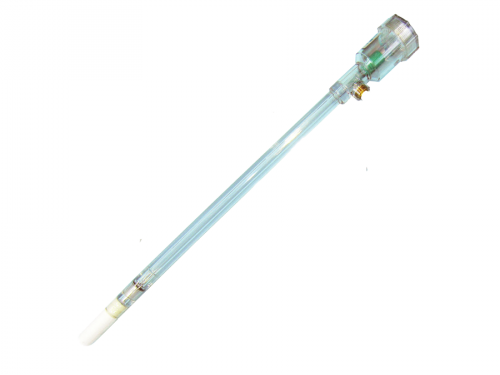#soilwater #irrigationmanagement #cropyield #waterconservation #sustainableagriculture #precisionfarming #resourceoptimization #environmentalsustainability #farmingtechnology #soilmoisture
The Importance of Soil Water Tension Measurement:
Soil water tension measurement provides valuable insights into the moisture availability and conditions in the root zone. It helps determine the energy plants need to absorb water, which is directly related to their overall health and productivity. By using instruments capable of measuring soil water tension, farmers can achieve a better understanding of soil moisture dynamics and make data-driven decisions for irrigation management. This knowledge empowers them to optimize water usage, minimize water stress, and ensure efficient nutrient uptake by crops.
To cater to diverse agricultural needs, soil water tension measurement instruments are available in different lengths. The options range from 15 cm to 90 cm, allowing farmers to select the appropriate depth for their specific crop and soil conditions. By choosing the right instrument length, farmers can accurately monitor soil moisture at the desired depth, enabling precise irrigation scheduling and preventing overwatering or underwatering.
Advantages of Soil Water Tension Measurement:
Enhanced Crop Yield: By measuring soil water tension, farmers can optimize irrigation timing and frequency, ensuring that crops receive the right amount of water when needed. This precision leads to improved crop yield in terms of both quantity and quality.
Water Conservation: Accurate soil water tension measurement enables efficient water management practices. By avoiding unnecessary irrigation and preventing water stress, farmers can significantly reduce water consumption and contribute to water conservation efforts.
Reduced Costs: Optimized irrigation based on soil water tension measurements minimizes the need for excessive water, fertilizers, and labor. As a result, farmers can reduce costs associated with irrigation and inputs, increasing overall profitability.
Energy Efficiency: By avoiding overwatering, which requires pumping and distributing excess water, farmers can save energy and reduce their carbon footprint. Soil water tension measurement helps optimize energy usage in irrigation systems.
Environmental Sustainability: Improved irrigation practices driven by soil water tension measurements contribute to sustainable agriculture. By minimizing water and fertilizer runoff, farmers can protect water bodies and ecosystems, promoting a more environmentally friendly approach to farming.
Soil water tension measurement plays a vital role in optimizing irrigation management for crop production. By understanding soil moisture dynamics and making informed decisions based on accurate measurements, farmers can achieve higher crop yields, reduce costs, conserve water, and contribute to environmental sustainability. Incorporating soil water tension measurement instruments into agricultural practices is a practical and effective way to enhance productivity while minimizing resource usage.







